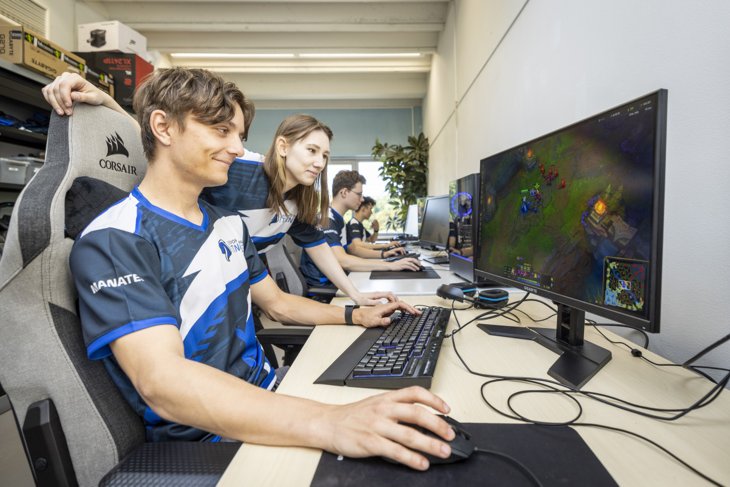Of course, there are a lot of good sides to playing games. In fact, media-psychological research keeps finding more! If you are not a player or familiar with players, here are five reasons why a varied gaming diet is actually very good for you. Each of these is supported by social-scientific research performed by communication scientists and psychologists.
1. You can be(come) good at them
When comparing games to other entertainment media, their interactivity stands out the most. As a player, you are given a lot of control over what happens in-game. Games are also great at giving you the tools you need to succeed and then testing how well you manage. This means that simply playing a game will eventually make you good at something. While this might not sound like much, being in control of something in our life and becoming better at that thing are both very good for our sense of well-being. It’s all a matter of choosing the right kind of game, for instance something you like doing or that you could be good at.
2. Players are better at other things too
So, we know games allow you to become good at, well, playing games. Thankfully, there is also plenty of research that proves that a lot of these skills can also be transferred into real life. Dr. Kawashima's Brain Training showed us years ago that our brains are flexible and that we can improve our cognitive abilities through games. People with a long history of playing different kinds of action games have faster reaction times, for example, but did you know that playing games also helps to hone reading and language skills? Multiplayer games can even teach collaborative soft skills. It turns out that planning to take down that undead dragon with twenty fellow warriors transfers well to tackling group projects at work or in school.
3. Games give you the freedom to choose
In today’s high-pressure environment, we all have a lot of chores, obligations, and appointments to get done on a daily basis. It would be easy to say games give you a chance to relax, but you can do that with a good book as well. What books are less useful for is meeting our need for autonomy. Veteran game designer Sid Meier once defined games as a ‘series of meaningful choices’. Virtual worlds make you feel autonomy if they let you make those choices on your own terms without having to worry about any real-life consequences.
4. Most people play together
The stereotypical image of a ‘gamer’ is that of a lone person, hiding away from the world in a basement or attic. This image looks outdated to most of us nowadays, as many games are actually hang-out spots. Players compete with each other, work together on shared goals in cooperative play, or just use the game as a backdrop to talk to each other. This was very visible during the COVID-19 lockdowns across the world, as people met up informally through games like Animal Crossing: New Horizons. Rather than just being an inferior alternative, though, games are actually the first choice for social interactions for many young people.
5. Games are emotional?!
When games were still new, lots of research went into proving whether or not they have negative effects on their players. For a long time, we did not see games in the same way we see movies or books. In fact, games are getting deeper and deeper in what stories they tell and what they can make us feel. They are maybe even better at this than other media! What do you think would touch you more deeply: seeing someone in a movie choose whether to use limited resources to feed a starving child or treat a sick adult or having to make that difficult choice for yourself? Not all games are this heavy, sure, but the success of games like The Last of Us teaches us that there is a bigger audience for emotionally meaningful gaming every year.




